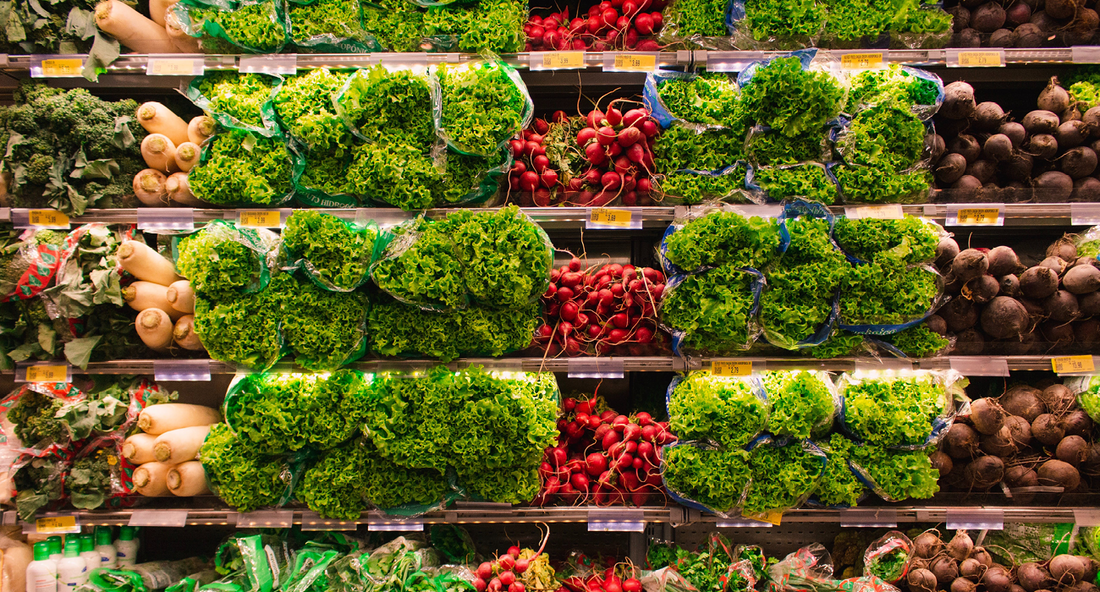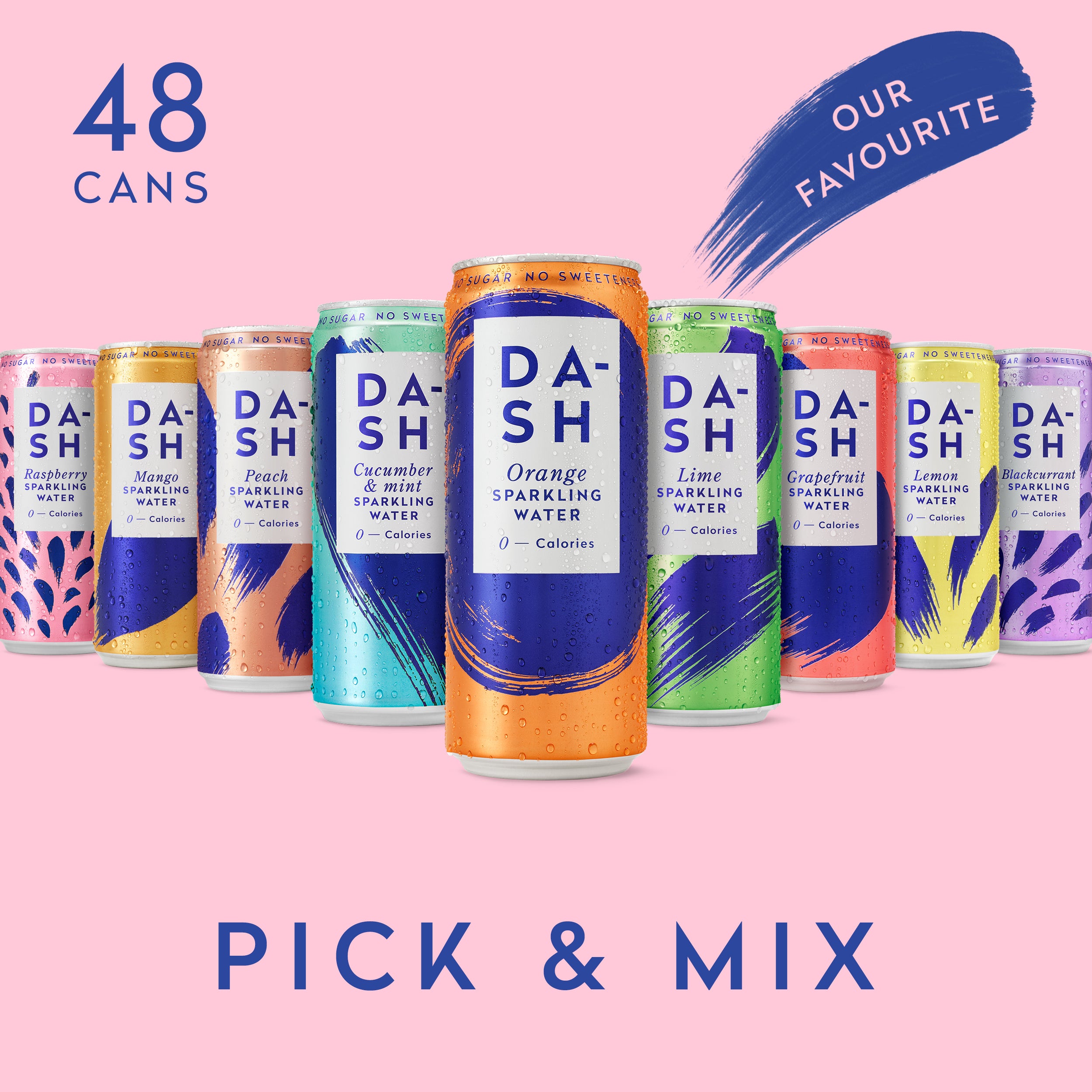
Your Guide to Sustainable Food Shopping
It’s now more important than ever to do our bit for the environment. But with the oversaturation of news on sustainability, it can feel overwhelming to know where to begin.
We’ve already discussed how to reduce food waste. But another tangible and impactful tactic can be sustainable food shopping. By making mindful choices at the supermarket, you can not only reduce your carbon footprint but also contribute to a broader movement for a healthier planet.
In this blog, we'll explore the significance of sustainable food shopping, showing how just a few grocery swaps can have a positive environmental impact.
What is Sustainable Food Shopping?
Sustainable food shopping involves making choices that prioritise environmental and ethical considerations throughout the entire supply chain. It's a conscious effort to minimise the carbon footprint associated with the production, transportation, and packaging of food products. This approach embraces practices that support biodiversity, reduce waste, and promote fair labour practices.
From opting for locally sourced, seasonal produce to shopping ‘wonky’, sustainable food shopping encourages consumers to be mindful of the impact their choices have on the planet. By selecting foods with lower carbon emissions and supporting businesses committed to ethical and sustainable practices, it’s possible to play a pivotal role in fostering a more eco-conscious and resilient food system.
The Carbon Footprint of Your Shopping Trolley
According to the Office for National Statistics Family Food findings, the average person spends £28.23 on household food and (non-alcoholic) drink supplies per week, totalling a staggering £1,467.96 annually. But have you ever considered the carbon footprint associated with your grocery choices?
Our data experts crunched the numbers using a Carbon Footprint calculator, revealing intriguing results based on different dietary preferences:
Vegan diet: 520 kg of CO2e per year, per person
Vegetarian diet: 690 kg of CO2e per year, per person
Pescatarian diet: 710 kg of CO2e per year, per person
Meat eaters: 1,060 kg of CO2e per year, per person
Meat eaters take note – your grocery habits contribute over 1,000 kg of secondary carbon emissions annually through household food and drink shopping. Shifting towards a more sustainable diet, such as pescatarian or vegan, could halve these yearly secondary carbon emissions.
Groceries with the Biggest Carbon Footprint
Secondary carbon emissions are those caused through the manufacturing and delivery of supermarket products. This means the choices you make at the grocery store have a direct impact on the environment. Cutting back on meat is a crucial first step because meat products are known to have much higher secondary carbon emissions.
We delved deeper into the supermarket aisles, examining the kilograms of CO2e per 100g for various products. The top five food products with the highest secondary carbon emissions are eye-opening:
Beef: 15.5 kg CO2e per 100g
Lamb: 5.84 kg CO2e per 100g
Prawns: 4.07 kg CO2e per 100g
Cheese: 2.79 kg CO2e per 100g
Pork: 2.40 kg CO2e per 100g
Groceries with the Smallest Carbon Footprint
Fruits and vegetables are the most sustainable groceries on the market. The stark difference in emissions becomes evident when comparing beef, which causes 500 times the secondary carbon emissions of apples. Here are the five most sustainable food products:
Apple: 0.03 kg CO2e per 100g
Orange: 0.04 kg CO2e per 100g
Root vegetables (i.e., carrots): 0.04 kg CO2e per 100g
Potato: 0.04 kg CO2e per 100g
Tofu: 0.08 kg CO2e per 100g
How to Food Shop Sustainably
Sustainable grocery shopping involves adopting mindful practices that contribute to a healthier planet. By making just a few easy changes to your shopping habits, you can reduce your carbon footprint significantly. Here are some tips on how to shop sustainably:
- Prioritise locally sourced and seasonal produce to reduce the environmental impact associated with long-distance transportation.
- Use reusable bags and containers to minimise single-use plastic waste.
- Consider exploring plant-based or lower-impact protein alternatives to reduce the carbon footprint of your diet.
- Pay attention to eco-certifications and labels, opting for products that adhere to sustainable farming and ethical labour practices.
- Favour items with minimal or recyclable packaging
- Research B-corp brands so you’re aware of those who use their business as a force for good.Supporting local farmers' markets and food cooperatives also promotes community resilience and reduces the environmental toll of large-scale industrial farming.
By making these small yet impactful changes, you can transform your grocery shopping routine into a sustainable and eco-friendly practice, contributing to a greener future.
Why is Sustainable Food Shopping Important?
Sustainable food shopping is important because it helps to create an environmentally conscious global food system. By making mindful choices at the supermarket, shoppers can actively participate in mitigating climate change, reducing pollution, and conserving natural resources.
Sustainable food shopping supports local economies, as purchasing locally sourced goods helps sustain small-scale farmers and businesses. Additionally, opting for seasonal produce and eco-friendly packaging contributes to biodiversity preservation and minimises the ecological footprint associated with food production and distribution.
Ethical considerations, such as fair labour practices and animal welfare, also contribute to sustainable food shopping practices, promoting a more compassionate and socially responsible approach to consumption.
Ultimately, embracing sustainable food shopping isn't just a personal choice. It's a collective responsibility that empowers us to look after the environment and advocates for a healthier, more sustainable future for generations to come.
Is DASH Water sustainable?
DASH Water is a sustainable drinks brand that's committed to do better for the planet and people. We use infinitely recyclable Aluminium Cans, wonky fruit that’s imperfect or surplus to requirement, and a low-energy production process. Shop our flavoured sparkling water now for a treat that’s as good for your taste buds as it is to the environment.


